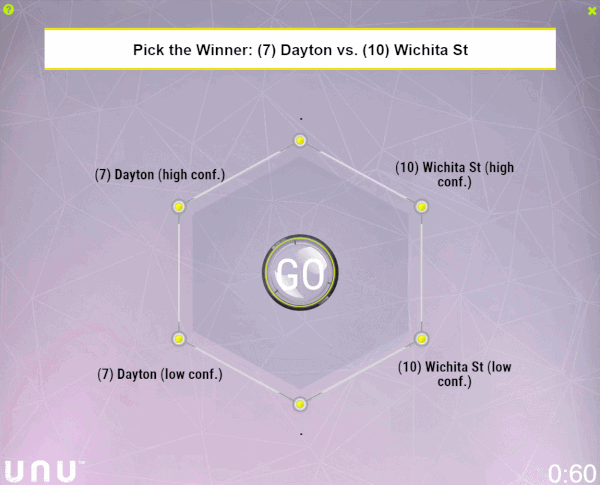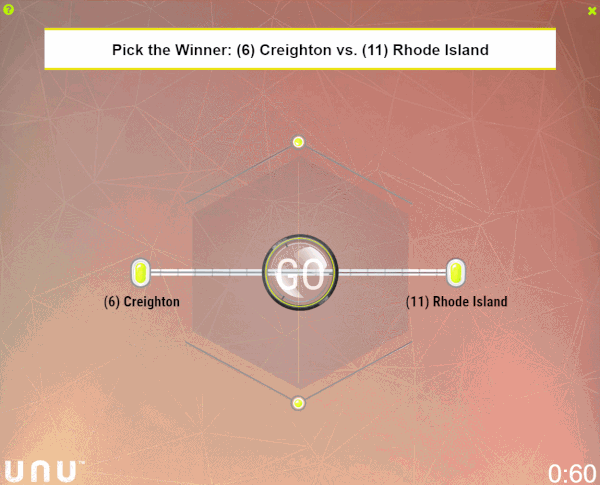UNU’s Bracket in TOP 10% of all Brackets on ESPN
Everyone thinks they are above average. This principle, known as illusory superiority, is never on better display than at March Madness when everyone in the office fills out their bracket and expects to be the next Joe Lunardi or Gary Parrish, even though we know that half of us will perform below average at any given task. And yet, even for so-called experts like Gary and Joe, it’s hard to be great with any consistency.
In fact, if you look at Gary Parrish’s season-long NCAA basketball picks, you’ll find he picked the winner against the spread just 49% of the time – exactly what Vegas would expect the average person to do. And through two rounds of the NCAA tournament, ESPN “bracketologist” Joe Lunardi is sitting in the 57% percentile in his own pool of 30,000 people. In other words, Joe, a highly paid expert on NCAA basketball, is barely beating half of the people who turn to him for advice!
So, what can an average person do if they want to amplify their performance?
Nature has the answer…
Swarm Intelligence helps animals make optimal decisions in crucial situations. They do it by working together in systems, combining their knowledge, wisdom, an intuition with such efficient, they converge on optimal outcomes. Here at Unanimous A.I., we’ve pioneered a way for us humans to take advantage of this power. It’s called Swarm A.I. technology and it a combines real-time human input and A.I. algorithms modeled after swarms in nature.
As you can see below, last week we put Swarm A.I. to test at March Madness:

We wanted to see if a group of 100 people could amplify their individual intelligence by thinking together as a swarm. Remember that the average person can expect to do no better than the 50th percentile, so that if swarming did not amplify intelligence at all, we’d expect the Swarm’s bracket to be in the 50th percentile, which, not coincidentally, is exactly where my own personal bracket is, sadly. If swarming could help UNU’s bracket to improve to the 57th percentile, where ESPN expert Joe Lunardi finds himself, that would means amplifying its intelligence to expert levels. And if a gambler like Gary Parrish improved his win rate from 49% to 57%, he would go from losing money every year to producing excellent returns.

FROM AVERAGE TO ELITE
So, how is UNU doing? After two chaotic rounds of March Madness, UNU’s bracket is sitting in the 90th percentile of all entries on ESPN. That means only one in ten people has a better bracket. In other words, the Swarm A.I. technology that drives UNU has allowed a group of average people to transform themselves from average to elite performers. You can check out our full bracket and how we generated it at our original NCAA post here.
What’s really mind-blowing is that this performance came from “average” people. These were not experts or sports journalists or professional gamblers. These were just regular college basketball fans. If you look at the median of the picks these 284 individuals made, they were in the 49th percentile after Round 2. Pretty average. Yet, by using the UNU platform, they were able to amplify their intelligence to super-expert-level. The exact same individuals used UNU to amplify their intelligence and make picks that were in the 99th percentile after Round 1 and 90th percentile after Round 2.
Of course, you’re wondering if this is just a lucky break or if swarming consistently outperforms. We’re consistent – week after week – outperforming on predictions on everything from the Oscars and Grammys to NFL, NHL, and coming soon – MLB. Check out a summary of our amazing 2016 predictions here.
Interested to hear more about our Swarm A.I.? Drop us a line below…


